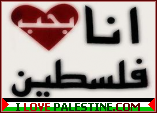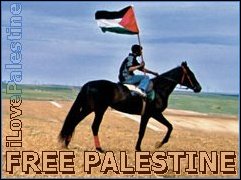No one could have predicted the fallout from this week's flotilla fiasco
Patrick Martin
Jerusalem — From Saturday's Globe and MailPublished on Friday, Jun. 04, 2010 10:12PM EDTLast updated on Saturday, Jun. 05, 2010 9:18AM EDT
Israel's ill-fated boarding operation of the Turkish ship Mavi Marmara has become a nightmare for the government of Benjamin Netanyahu, but a dream come true for the leaders of Hamas.
And it's not over yet. The vessel Rachel Corrie, an Irish boat carrying more humanitarian supplies and yet more activists, is on course to arrive in Gaza as early as Saturday. The Israeli government has said it will not allow the vessel to reach Gaza and will board it if necessary.
“It couldn't have gone worse for Israel. In football, we used to call it ‘stumble, fumble and fall. ”— Paul Heinbecker, a former Canadian ambassador to the United Nations
Just a week ago, the whole situation looked dramatically different. Gaza's tiny, shallow-water port was getting a cleanup and the area was decorated with Turkish flags and signs welcoming “the heroes” on board the flotilla then on route to Gaza.
When word arrived that several of the eight vessels in the flotilla had engine trouble, however, it all suddenly seemed pathetic. No one had actually believed the boats would get through the three-year-old Israeli naval blockade, but engine trouble? Even if the hand of the Mossad could be detected, that wasn't going to produce the kind of headlines the Hamas leadership craved.
No one, however, could have imagined the turn of events about to take place, and the consequences that still are flowing from it.
“It was a perfect storm,” said Paul Heinbecker, a former Canadian ambassador to the United Nations. “It couldn't have gone worse for Israel. In football, we used to call it ‘stumble, fumble and fall.' ”
With nine activists killed, its defence forces embarrassed and world opinion arrayed against Israel, the Netanyahu government has begun to pay a price for its action.
U.S. officials, including President Barack Obama, have made it clear that the blockade of Gaza will have to change, and Israel's security needs otherwise assured.
But easing the blockade is just the beginning.
Of far greater importance to Israel is the boost that its dreaded enemy, Hamas, has received.
Israeli efforts to wear down the group, through large-scale bombardment a year-and-a-half ago, through a virtual siege the past three years and through the imprisonment of thousands of Hamas members, have failed. Now, with the events of this week, the Islamic Resistance Movement (its full name) appears stronger than ever.
Israel's hopes of isolating Gaza from the West Bank Palestinian Authority led by Mahmoud Abbas have also been dashed, as Palestinians throughout the West Bank embrace Gaza once again. Even Mr. Abbas has publicly expressed the gratitude of all Palestinians to the Turkish government for supporting the flotilla and standing up to Israel, even though Mr. Abbas detests Hamas for its overthrow of his forces in Gaza in 2007, and fears Hamas's political power.
And it doesn't end there. Just this week, the head of Israel's Mossad intelligence service warned members of Israel's Knesset that Turkey was aligning itself with Syria and Iran and forming a new anti-Israel coalition. That prospect got a lot more likely this week.
The Israeli assault on the Turkish ship “has guaranteed the re-election of the Islamists in Turkey,” said Mr. Heinbecker. “Until this week, the new leader of the opposition, a secularist, had a good chance at winning the next election,” he said. “But now [Prime Minister Recep] Erdogan has been strengthened enormously.”
If Mr. Erdogan has been strengthened, the campaign to invoke tough sanctions against Iran for its nuclear program have been sorely weakened, added Mr. Heinbecker. “People know that the campaign against Iran is particularly dear to Netanyahu, so they're less likely to support it now.”
“The whole campaign could go belly up,” he said.
Globally, Israel may be paying a big price as well, as the worldwide campaign to boycott Israel is sure to grow, said Nehemia Shtrasler in his Friday economics column in the Haaretz newspaper.
Writing about politics and the flotilla may seem strange in a business-section column, but Mr. Shtrasler explains that it is because of “the unprecedented nadir to which Israel's status in the world has sunk – to the point of the delegitimization of the state. That,” he says, “is a strategic threat to Israel.”
To be sure, Israel's weekend press contained lots of congratulatory articles praising the performance of the commandos who boarded the Mavi Marmara (though the large-circulation Yedioth Ahronoth revealed that the military preferred not to release certain videos in which, according to the newspaper, Israeli “soldiers are seen unclothed and bleeding, being beaten badly and crying for help.”) However, every painful setback for the Netanyahu government is a cause for celebration by Hamas.
For three years, its leaders have been telling the people of Gaza to hold on, that better days would be coming, that the siege would be lifted. They tried firing thousands of home-made rockets at Israel to little effect, and weathered a massive retaliatory onslaught by Israeli forces in December-January 2008-09 that killed 1,300 Gazans.
It took the deaths of nine international activists, most of them Turkish, to make a difference.
Easing the blockade is just one way Hamas stands to benefit, said Beverley Milton-Edwards, co-author of a new book, Hamas: The Islamic Resistance Movement. “And they don't even have to raise a finger – Israel is handing it to them on a platter.”
Another way Hamas can gain, she said in an interview, “is by the support it can pick up around the region.”
While Turkey's Islamic-oriented government has always supported Hamas, many of the Arab countries, such as Saudi Arabia, Jordan and Egypt, have sided with the Palestinian Authority of Mr. Abbas in its struggle with Hamas.
Not necessarily any more.
“Khaled Meshaal [Hamas's Damascus-based leader] is playing it very carefully this week,” said Dr. Milton-Edwards, a professor of Mideast politics at Queen's University, Belfast. “He went to Yemen, for example, and made a quiet appeal for regional help.”
The result has been a large increase in support from the countries of the Arab League, including Egypt, which felt the need to open its frontier with Gaza, at least, to a limited degree. (It had been closed in support of the PA.) “The Egyptian government is in a double bind,” said Ezzedine Choukri Fishere, a former adviser to Egypt's Foreign Minister. “It doesn't want to see the growth of the radical view in the region, but it has to stand firmly with the Arab League,” he said.
But the big prize that still awaits Hamas is recognition by the capitals of the West.
“A lot of people are starting to ask themselves if there can be a successful peace process without Hamas,” said Dr. Milton-Edwards. Even the consensus of the Quartet (the United States, European Union, Russia and the United Nations) is fracturing, she said.
“But so far this has not resulted in recognition in the West, only in support of a lifting of the blockade.”
For its part, Hamas is preaching reconciliation.
In a remarkable commentary in the weekend edition of Jerusalem's main Arab newspaper, Al Quds, Ahmed Yousef, the Hamas government's deputy foreign minister, called on all Palestinians to recognize that the correct path for the Islamic movement is to follow the conciliatory approach of Turkey's Islamic party, rather than the violent exclusionary approach of Afghanistan's Taliban.“We are at a crossroads,” Mr. Yousef wrote. “We have to choose between realizing our dreams and suicide.”
Source: The Globe and Mail

















